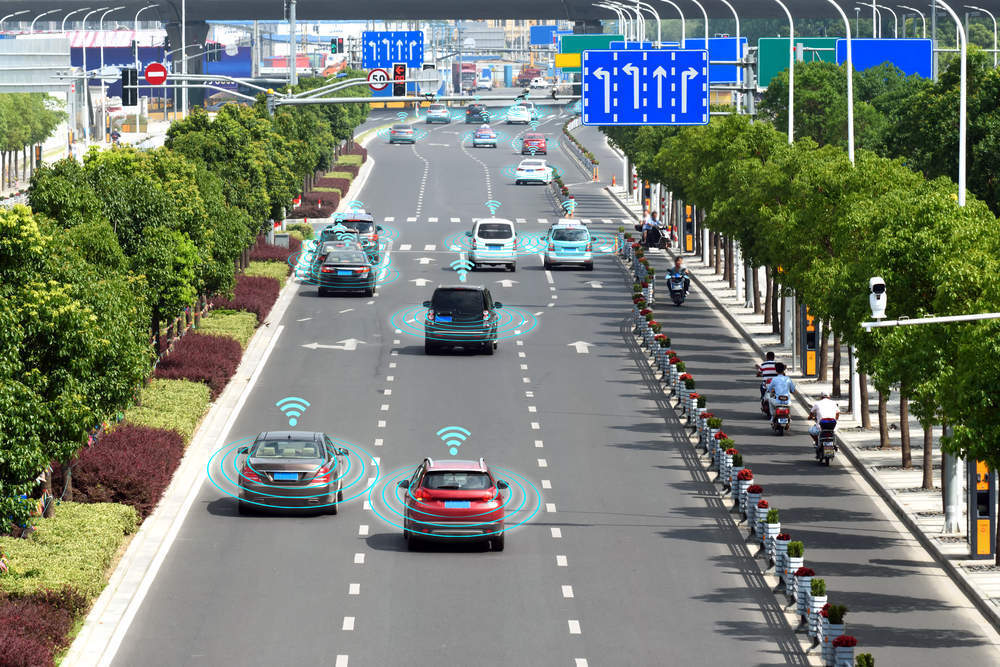
The UK has come out on top as the country with the biggest mass-market potential for connected and autonomous vehicles (CAVs) – but only if the Brexit roadblock is removed.
This is according to a major new report published today by the Society of Motor Manufacturers and Traders (SMMT) and Frost & Sullivan, which ranks the UK above other major automotive countries for CAVs, including Germany, US, Japan and South Korea.
The report, Connected and Autonomous Vehicles: Winning the Global Race to Market, predicts that the UK connected and autonomous car market could be worth £62bn by 2030, citing the safety benefits of driver assistance and self-driving technology as fuelling market growth, as well as the benefits of greater productivity and faster journeys for commuters.
However, this success is dependent on the outcome of the UK’s exit from the European Union. A ‘no deal’ scenario could deter investment in the UK self-driving car industry.
The state of the UK self-driving car industry
With more than £500m already committed by industry and government to CAV R&D and testing, the UK is in a strong position to be a world-leader in this area. Autonomous vehicle testing is underway in CAV test beds, and more than 80 R&D projects are in progress.
If this is translated to real-world deployment, then this could become a major area of the UK economy.
How well do you really know your competitors?
Access the most comprehensive Company Profiles on the market, powered by GlobalData. Save hours of research. Gain competitive edge.

Thank you!
Your download email will arrive shortly
Not ready to buy yet? Download a free sample
We are confident about the unique quality of our Company Profiles. However, we want you to make the most beneficial decision for your business, so we offer a free sample that you can download by submitting the below form
By GlobalDataOver the next decade, the UK self-driving car industry is set to prevent 47,000 serious accidents and save 3,900 lives, while creating an estimated 420,000 jobs.
The report identifies three major areas that will drive CAV rollout: supportive regulation, investment in infrastructure, and an attractive market.
However, to realise this potential, the UK’s departure from the EU must be orderly, and must include a deal that supports industry and technological collaboration, especially regarding data.
Brexit and the risks to the driverless car industry
The report’s key recommendations for government include updating road traffic laws, improving 4G coverage across all road networks, and playing a part in international regulations to ensure these new vehicles can operate seamlessly between the UK and abroad. However, this is in danger if Brexit does not go smoothly.
The report warns that a ‘no deal’ Brexit will result in “lasting damage to the UK’s reputation as a politically stable destination for inward investment, putting the benefits identified in the report at risk”.
Mike Hawes, SMMT Chief Executive believes that the UK self-driving car industry may be ahead for now, bur risks falling behind if political uncertainty continues:
“A transport revolution stands before us as we move to self-driving cars and the UK is in pole position in this £62 billion race. Government and industry have already invested millions to lay the foundations, and the opportunities are dramatic – new jobs, economic growth and improvements across society.
The UK’s potential is clear. We are ahead of many rival nations but to realise these benefits we must move fast. Brexit has undermined our global reputation for political stability and it continues to devour valuable time and investment. We need the deadlock broken with ‘no deal’ categorically ruled out and a future relationship agreed that reflects the integrated nature of our industry and delivers frictionless trade.”







